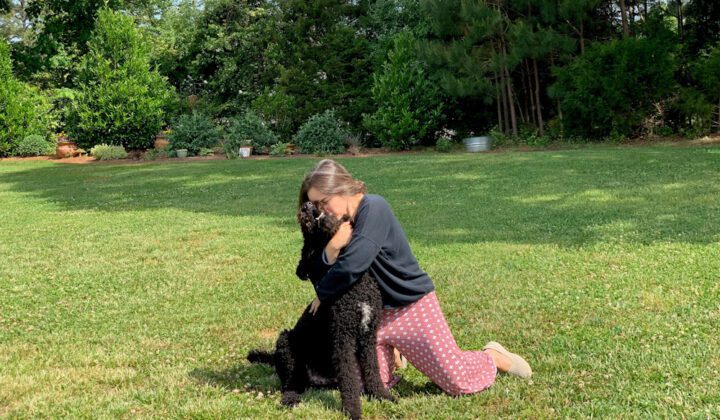Click here for part 1!
At this point my joint pain was severely impacting my quality of life, so I looked for other sources of help. I joined a psychotherapy program for 3 years to work on my childhood trauma. I visited the acupuncturist and tried Traditional Chinese Medicine. I tried supplements, an elimination diet, and joined a mind and body course led by a brilliant nurse who employed various meditation techniques to help me cope with the pain. One day, I asked a doctor friend during a dinner about medication options; he proposed I do a self mini study with three different drugs. After trying each option for two weeks, I found a medicine that helped me control the pain, but of course if taken continuously would eventually damage my liver! I even joined the medical marijuana program to identify what type of cannabis might help (but on an edible induced ER visit I had to endure the humiliation by first responders who called me a “stoner” – it turned out I had a Robitussin-Cannabis toxic interaction). My pain levels where so high that I needed to be medicated every day just to function, but the medical cocktails would cause fatigue episodes during work.
My health continued to decline. I could not remain standing for long periods of time without feeling excruciating pain in my hips and lower extremities and was experiencing recurring shoulder and ankles subluxations. The worst was the repeated falls. In a period of 10 months, I fell 11 times. I visited the ER three more times. Once I lost consciousness and had a mild concussion after falling at home. Another time I fell downstairs, and I hit my spine and neck, which destabilized by neck-head joint and put me in bed for two long months. It was around that time that a friends said:
“Your story sounds like another person I know.”
She put us in touch and there I discovered the power of speaking with people who had similar disease experiences. I learned that empowering others allowed me to empower myself.
By then, more than 8 years had passed, but I felt I was finally discovering my path to recovery. I joined the local EDS patient advocacy group where I saw many people suffering from similar issues (and worse). I could identify myself. I could talk to people who understood what I was saying and who empathized with me. I also learned how my disease would eventually progress. Other patients taught me how to control my dizziness and recommended that I form my own team of doctors to manage my care. I now have a team: a functional medicine doctor, a nutritionist linked to functional medicine, an osteopath, a podiatrist, and a psychologist to keep my sanity. I also joined a brain retraining program and got a specially trained balance assistance service dog. I feel incredibly lucky that I have been able to recruit an amazing care team, but with this level of intervention comes out-of-pocket bills that cause their own challenges and stress.
One of the biggest frustrations in my journey has been in my dealings with physicians: they made me feel inferior when I visited them as a patient. Whenever I tried to offer my opinion, I was dismissed with the “I am the doctor and I know more than you” look. Wrong. It has been proven that patients with rare and chronic debilitating diseases are generally better informed. If only doctors would first listen and then work with their patients as a team to find the best possible options for care and healing, there would be less frustrated, misdiagnosed, and mistreated patients in the world. But the current healthcare system doesn’t encourage doctors to invest this kind of time with their patients, or give them enough resources that supports personalized care planning.
Proper care for rare disease patients should not be held back by the limitations of a physician’s experience or resources. I decided to make a difference, so people like me would have a chance to feel empowered and feel better. I poured all of my experience – across medicine, biology, drug development, and my personal disease odyssey – into creating a team of empathic entrepreneurs and physicians who want to change how rare diseases patients are care for. The result is TMA Precision Health. We designed a platform that allows TMA Disease Investigators (MD’s, PhD’s, NP’s) and Case Coordinators (RNs and others) to provide patients and physicians with precision clinical decision support for their unique disease. TMA does this by using our AI-based tools to create a personalized reports that allows a physician to rapidly understand the patient’s journey and disease progression, and understand the state-of-the-art care protocols and medication options. I am not cured, but because of the platform we created I now understand my options to manage my disease better, which has let me decrease my flare ups and enjoy more time with my family. We all deserve to feel empowered and live a life that makes us as happy as possible – my journey now is to make that true for rare disease patients around the world.
About the Author: Lina is an international scientific collaborator that has been involved in the creation of more than a dozen life sciences startups and has worked closely with hundreds of researchers worldwide to evaluate and assess promising technologies and discoveries. Lina’s main area of expertise is translational medicine (from bench to bed) and early-stage company formation (from academia to startup). Lina’s professional experience is mainly in drug development, identification of promising innovation from academia, creation of new companies and early startup growth phase (Novartis, Brigham and Women’s Hospital – BWH, Harvard Medical School – HMS, Emulate inc.). That combined with her personal experience as a patient with a rare disease led her to the formation of TMA Precision Health – a team of several prominent and world leading scientists put together to improve patient care, diagnosis and advance therapies for rare and undiagnosed diseases. She is renowned for her ability to quickly assess and develop compelling strategic roadmaps for promising technology and discoveries with realistic potential to produce therapeutic breakthroughs for patients, employing a powerful network of research relationships and collaborative partnerships worldwide. Lina holds a DVM PhD from the University of Bern in Switzerland.
About TMA
We are on a mission to improve healthcare for rare and complex disease patients around the world. Using our AI-based platform, we create personalized precision care plans that support patients and their doctors in making the best clinical decisions. How can we help you?
For more information, please visit tmaprecisionhealth.com





